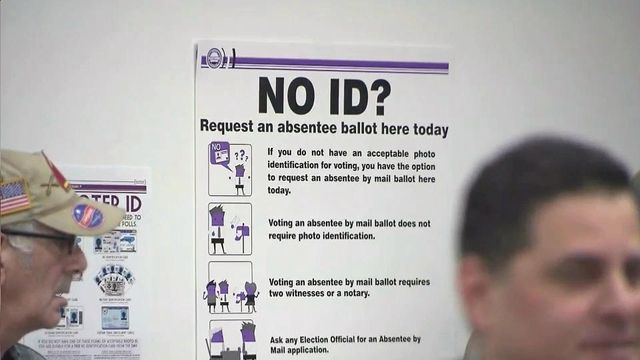Court ruling doesn't end fight over voter ID law
The NAACP and the American Civil Liberties Union said Tuesday that they will appeal a federal judge's ruling upholding changes to North Carolina's election laws, including a requirement that voter show photo identification at the polls.
Posted — UpdatedU.S. District Judge Thomas Schroeder ruled late Monday that the two groups, along with the League of Women Voters, Common Cause North Carolina and others who challenged the Voter Information Verification Act, failed to show that the changes included in the 2013 law violated the Constitution or the federal Voting Rights Act.
In addition to voter ID, the law reduced the early voting period by a week, eliminated same-day registration during early voting and ended out-of-precinct voting, among other changes.
"We all know that these measures made it harder for all North Carolinians to vote and in particular African-Americans and low-income North Carolinians," said Chris Brook, legal director for the ACLU of North Carolina. "What we’ve seen in each election is literally tens of thousands of North Carolinians have been negatively impacted by these changes."
The State Board of Elections will begin examining voter data from the March primary next week to determine actual effects of the voter ID law.
"Passing (the law) right after the Supreme Court gutted the Voting Rights Act in June of 2013 ... indicates this law was intentionally discriminatory," state NAACP President Rev. William Barber said in a statement. "We cannot embrace a belief that, if someone goes through Herculean measures to miraculously overcome mammoth discrimination, then the discriminatory obstacles are OK. This is a faulty and dangerous rationalization."
Rep. David Lewis, R-Harnett, one of the authors of the 2013 law, said he doubts an appeal will be successful, noting that voter turnout has been going up in recent elections.
"I think we’ll be able to show, just as was shown in Georgia and Indiana, that the implementation of voter ID actually educates and informs people more to get involved and actually increases voter turnout," Lewis said.
David McLennan, a political science professor at Meredith College in Raleigh, said the appeal likely wouldn't make it through the 4th U.S. Circuit Court of Appeals before the November election.
"I think we’re going to have to take an election cycle to really study it to know if it really does discriminate against older people or minorities or whether people adapt to it," McLennan said.
Schroeder ruled that the prohibition on out-of-precinct voting – when a voter comes to the wrong polling place on Election Day – should take effect after the June 7 congressional primary.
Related Topics
• Credits
Copyright 2024 by Capitol Broadcasting Company. All rights reserved. This material may not be published, broadcast, rewritten or redistributed.






